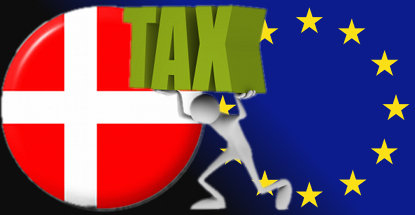 The European Union’s top court has ruled that Denmark can continue to impose a lower tax rate on online gambling operators than the rate levied against brick-and-mortar casinos. On Friday, the Court of Justice of the European Union (CJEU) upheld Denmark’s right to impose a 20% tax on gross gaming revenue generated by state-licensed online gambling sites. The ruling quashes a complaint by Royal Scandinavian Casino Århus, one of the country’s seven major casinos that labor under tax rates that start at 45% and can range as high as 75%.
The European Union’s top court has ruled that Denmark can continue to impose a lower tax rate on online gambling operators than the rate levied against brick-and-mortar casinos. On Friday, the Court of Justice of the European Union (CJEU) upheld Denmark’s right to impose a 20% tax on gross gaming revenue generated by state-licensed online gambling sites. The ruling quashes a complaint by Royal Scandinavian Casino Århus, one of the country’s seven major casinos that labor under tax rates that start at 45% and can range as high as 75%.
The European Commission had approved the two-tier scheme three years ago, despite concerns that the lower online tax constituted illegal state aid, arguing that the positive effects outweighed the “distortions of competition brought about by the measure.” The land-based groups protested and the long, slow legal process commenced in earnest.
In Friday’s ruling, the CJEU justified the two-tier tax scheme based on the fact that Denmark’s officially sanctioned online gambling sites needed to be able to compete with the many internationally regulated sites that continue to serve the Danish market. The CJEU noted that these are challenges not faced by the land-based gambling operations.
Denmark’s legal fight had been supported by the European Gaming and Betting Association (EGBA) and UK-listed online betting exchange Betfair, which holds a Danish online gaming license. EGBA Secretary General Maarten Haijer welcomed the CJEU’s decision, noting that there are already too many examples of EU member states “where the regulated offer fails to attract consumers due to product restrictions and tax levels.”
The ruling has implications for the Netherlands, which is preparing to institute its own regulated online gambling market. Like Denmark, the Dutch government plans to impose a 20% tax on its licensed online operators while the country’s land-based gambling joints pay 29%. The Dutch Council of State has challenged this discrepancy, but the CJEU ruling should give the government’s Remote Gaming Bill all the legal muscle it needs to squelch any lingering concerns.
